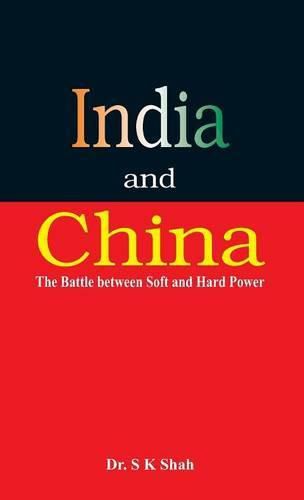Readings Newsletter
Become a Readings Member to make your shopping experience even easier.
Sign in or sign up for free!
You’re not far away from qualifying for FREE standard shipping within Australia
You’ve qualified for FREE standard shipping within Australia
The cart is loading…






This title is printed to order. This book may have been self-published. If so, we cannot guarantee the quality of the content. In the main most books will have gone through the editing process however some may not. We therefore suggest that you be aware of this before ordering this book. If in doubt check either the author or publisher’s details as we are unable to accept any returns unless they are faulty. Please contact us if you have any questions.
Since soft power is an intangible component of a state’s power, it is difficult to measure its actual impact. The advantages of hard power such as military and economic resources are that they can be measured and compared, and their direct effects are more or less palpable. It is easy for example to compare Indian and Chinese military expenditures. It is impossible however to quantify the appeal of a country’s values, culture, institutions or achievements, an appeal which is inherently subjective and therefore contested and fluctuating. Since the early 2000s, in keeping with India’s rise on the world stage, the scholarly and policy communities in India and abroad have witnessed a steady increase in writing on India’s soft power. Many of these assessments are optimistic, placing faith in India’s potential as a civilizational great power with considerable resources arising from its culture, domestic ideology and diplomacy. The uniqueness of this book hence lies in the author’s way of reconstructing the chapter under review by delving deep into the areas of the subject.
$9.00 standard shipping within Australia
FREE standard shipping within Australia for orders over $100.00
Express & International shipping calculated at checkout
This title is printed to order. This book may have been self-published. If so, we cannot guarantee the quality of the content. In the main most books will have gone through the editing process however some may not. We therefore suggest that you be aware of this before ordering this book. If in doubt check either the author or publisher’s details as we are unable to accept any returns unless they are faulty. Please contact us if you have any questions.
Since soft power is an intangible component of a state’s power, it is difficult to measure its actual impact. The advantages of hard power such as military and economic resources are that they can be measured and compared, and their direct effects are more or less palpable. It is easy for example to compare Indian and Chinese military expenditures. It is impossible however to quantify the appeal of a country’s values, culture, institutions or achievements, an appeal which is inherently subjective and therefore contested and fluctuating. Since the early 2000s, in keeping with India’s rise on the world stage, the scholarly and policy communities in India and abroad have witnessed a steady increase in writing on India’s soft power. Many of these assessments are optimistic, placing faith in India’s potential as a civilizational great power with considerable resources arising from its culture, domestic ideology and diplomacy. The uniqueness of this book hence lies in the author’s way of reconstructing the chapter under review by delving deep into the areas of the subject.